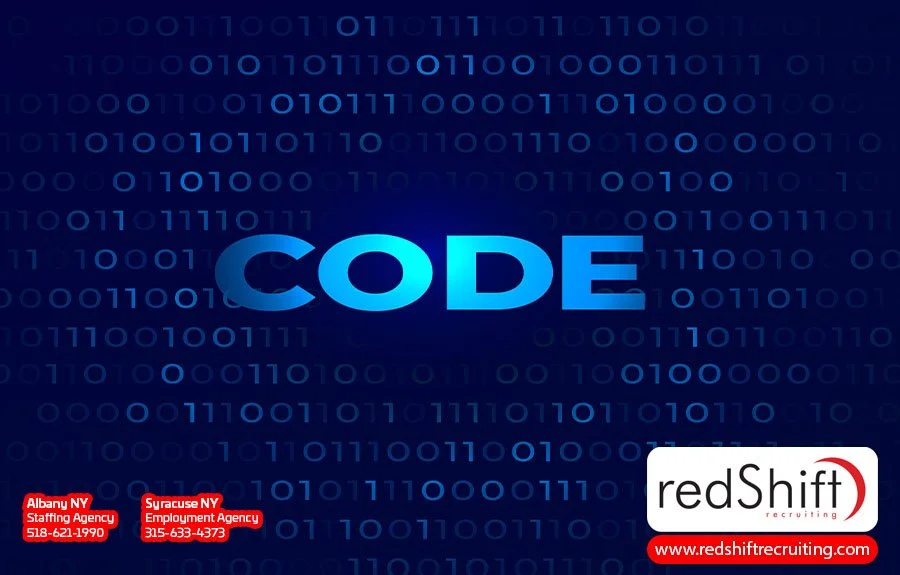Exploring Careers in Coding: Options and Opportunities
Ever dreamed of building the next big app, designing your own video game, or creating a website that millions of people use every day? If so, you might be destined for a career in coding! But is coding really just about hunching over a keyboard, battling bugs, and chugging coffee all day? Absolutely not! For those with a passion for technology, a coding career offers a dynamic mix of creativity, problem-solving, and challenges that keep things exciting. Coding opens the door to a wide range of opportunities, from classic paths like web development and mobile app creation to cutting-edge fields such as machine learning and AI. In this article, we’ll explore some of the most popular careers in coding, highlighting the perks and challenges and identifying the key skills, education, and strategies you’ll need to succeed. Is coding the right path for you? Let’s find out!
Popular Coding Careers
The world of coding offers a wide range of career options, each with its own unique challenges and rewards. Whether you’re interested in building websites, analyzing data, or developing cutting-edge AI, there’s likely a coding career that suits your interests. Below are some of the most in-demand coding roles to consider:
Web Developer
Web developers specialize in creating and maintaining websites but may focus on either the front-end (user experience) or the back-end (server side). Front-end developers are responsible for the design, layout, and interactive features of a website, ensuring it looks good and functions smoothly on all devices. They use HTML, CSS, and JavaScript to create visually appealing and functional user interfaces. On the other hand, back-end developers write the code that powers the server-side, enabling communication between the website, databases, and applications using languages like Python, Ruby, and Java. For instance, a backend developer may work on building the logic behind a social media platform’s data storage and retrieval systems, whereas a front-end developer may focus on developing the user interface for a social media feed, ensuring that posts load smoothly and users can easily interact with the content. Whether you're focused on front-end or back-end, web development offers the opportunity to create smooth, engaging digital experiences.
Full-Stack Developer
Full-stack developers work on both the front-end and back-end of websites and applications, making them responsible for the entire development process. This role requires a broader skill set, with knowledge of both the user-facing interface (front-end) and the server-side logic (back-end). Full-stack developers often use coding languages like JavaScript, Python, and SQL, allowing them to handle everything from designing responsive layouts to managing databases and server infrastructure. For example, a full-stack developer might be responsible for building an entire e-commerce site, handling everything from the product pages customers browse to integrating a secure payment system on the back-end. Their versatility makes this one of the most dynamic and in-demand coding careers.
Software Engineer
Software engineers design, develop, and maintain software applications. They write code in multiple programming languages, such as Java, C++, Python, and JavaScript, and work across industries like tech, healthcare, and finance. For example, a software engineer might create an inventory system for a retail company that tracks products in real time and integrates with the existing systems , or develop a patient management system for a healthcare company, ensuring it securely stores patient data and streamlines appointments and billing. This role requires proficiency in various languages, along with strong problem-solving skills to design scalable solutions that integrate with their company’s computer systems. If you’re interested in writing code to solve practical problems, the career of a software engineer has broad appeal.
Mobile App Developer
Mobile app developers create applications for smartphones and tablets, working with languages like Swift, Kotlin, or Java. These developers focus on designing smooth, user-friendly mobile applications, requiring a solid understanding of mobile development frameworks, user interface design principles, and experience with cross-platform development tools like React Native or Flutter. In this role, you might develop a fitness app that helps users track their workouts and integrates with wearable devices, making sure it runs smoothly across Android and iOS, or you might create a mobile banking app that allows users to securely manage their accounts, transfer money, and receive notifications in real time.
Game Developer
Game developers use coding to bring video games to life. Whether it's creating a multiplayer online game or a mobile puzzle app, this career combines creativity with coding skills in languages like C++ and C#. While the idea of making games sounds as fun as playing them, the reality is more technical and problem-solving-oriented. Game development often involves long hours spent debugging, optimizing performance, and fine-tuning complex systems, which can be less glamorous than expected. For instance, a game developer might work on coding the mechanics for an action-adventure game, ensuring smooth gameplay and realistic physics interactions. While this may differ from the thrill of playing games for fun, for those who love the challenge of blending creativity with detailed technical work, it’s a deeply rewarding field that brings the excitement of gaming to life.
AI Engineer
AI engineers build intelligent systems and machine learning models, working on automation projects and developing algorithms that can learn and adapt. An AI engineer might develop a chatbot for a customer service department that can answer frequently asked questions and learn from each interaction to get better over time, or design a recommendation system for an e-commerce platform that personalizes product suggestions based on user behavior and preferences. This role requires strong programming skills in languages like Python and experience with machine learning frameworks such as TensorFlow or PyTorch. If you’re excited by the possibilities of artificial intelligence, this role is at the cutting edge of tech.
Machine Learning Engineer
Machine learning engineers create models that can analyze data and make decisions based on patterns. They typically work in areas like speech recognition or recommendation systems, coding algorithms that help systems learn and improve over time. A machine learning engineer might develop a recommendation engine for an online shopping site, helping it suggest products based on what customers have previously viewed or purchased, or build a fraud detection system for a financial institution that can identify suspicious transactions in real time. This role requires proficiency in programming languages like Python and R, as well as experience with machine learning frameworks such as Scikit-learn or TensorFlow.
Database Developer
Database developers design and manage databases that store and organize data for applications. They write queries and scripts in SQL and sometimes develop custom databases to meet specific business needs. This role requires strong proficiency in SQL, database management systems like MySQL or PostgreSQL, and knowledge of data security and optimization techniques to ensure efficient and secure data handling. As a database developer, you might design a customer relationship management (CRM) system, building a database that allows sales teams to track leads, interactions, and customer data in one place. Or you could create a financial database for a bank, ensuring secure storage and quick retrieval of transaction data for millions of users. If you enjoy working with data, this could be an excellent coding job for you.
Embedded Systems Developer
Embedded systems developers write code for hardware devices, from smart home gadgets to medical equipment. They work closely with hardware engineers to ensure that the software and hardware work together seamlessly, using languages like C and C++. An embedded systems developer might write the firmware for a smart thermostat, coding the system that controls the temperature settings and connects to a mobile app for remote adjustments, or develop software for a pacemaker, ensuring it accurately monitors and regulates heart rhythms in real time. This role requires a deep understanding of computer systems design, low-level programming, real-time operating systems (RTOS), and strong problem-solving skills to optimize code for memory and performance constraints in hardware. Ensuring the device is operating properly and safely is a critical responsibility in this role.
Benefits and Challenges of a Coding Career
Pursuing a career in coding offers plenty of advantages, but like any field, it also comes with its challenges. Whether you’re building an organization's computer systems or developing apps for mobile devices, let’s explore what you can expect from a coding career.
Intellectual Stimulation and Problem-Solving
Coding is all about solving problems. Whether you're debugging a program, designing network security protocols, or creating AI algorithms, the constant challenge of thinking through solutions can be incredibly rewarding. If you enjoy finding creative ways to fix or improve things, you’ll likely find roles like AI engineer or machine learning specialist especially exciting, as they often involve creating systems that adapt and learn over time.
High Earning Potential and Job Security
In the tech industry, coding jobs are known for offering competitive salaries. Positions like database developer, software engineer, or full-stack developer come with high earning potential and strong job security. The demand for coding skills is only growing, especially in industries like finance, healthcare, and retail, where digital transformation and data management are critical to staying competitive. With automation and artificial intelligence playing larger roles in today’s world, careers like AI engineer or machine learning expert are becoming even more sought after, adding to the job security of coding careers.
Continuous Learning and Adaptation
One of the biggest challenges (and opportunities!) in coding is the need for continuous learning. Technology changes quickly, and it’s important to stay current with the latest tools, languages, and frameworks. For example, web developers often need to know frameworks like React or Angular, while AI professionals work with libraries such as TensorFlow. If you're someone who enjoys learning and developing with the industry, you’ll find this constant growth exciting, but it can also be a challenge if you prefer stability in your knowledge base.
Work-Life Balance Considerations
While coding careers can offer flexibility, particularly if they are remote jobs, some can have intense workloads. Software engineers, for instance, might have to troubleshoot technical issues outside of normal hours, particularly during critical project deadlines. Similarly, roles in industries like gaming or finance can have periods of high pressure, which can impact work-life balance. Managing these demands can be tough, so it’s something to consider depending on the coding career you choose.
Competitive Job Market
While there is high demand for coding skills, the job market can also be competitive, especially for entry-level positions. Roles like web developer or mobile app developer might have more candidates than open positions, which can make it harder to land your first job. However, developing expertise in specialized areas, such as blockchain or machine learning, can set you apart from the competition. As these technologies continue to evolve, they create new opportunities for coders who are willing to adapt.
Emerging Technologies and Career Opportunities
The tech landscape is always changing, and with it come new career opportunities. Technologies like blockchain, the Internet of Things (IoT), and advanced machine learning are revolutionizing industries from healthcare to retail. Artificial intelligence is increasingly being used for automation and data analysis, and companies are looking for skilled coders to lead these digital transformations. For those who can stay ahead of the curve, there’s no shortage of exciting work. It’s an exciting but fast-moving space, so staying up-to-date is crucial.
Industry Applications and Career Versatility
Coding skills are in demand across many industries, from network security in finance to developing AI-driven solutions in healthcare. They are also highly transferable, giving professionals the flexibility to transition between roles during the course of their career. For example, a web developer could become a mobile app developer or a full-stack developer, or a software engineer could move into data science with additional training. This versatility makes coding a great choice if you want the ability to explore different roles or industries.
Essential Technical Skills
To thrive in a coding career, you need more than just basic coding skills. The best coders' resumes demonstrate a strong mix of technical skills, key tools, and complementary soft skills. The following are some of the key competencies that will help you stay competitive and adaptable across various roles and industries:
Programming Languages: Every coder needs to be proficient in at least a few programming languages. Python is known for its versatility in areas like web development and AI, while Java is essential for mobile applications and large-scale enterprise systems. JavaScript is a must for web development, and C++ is favored for its speed and performance, making it popular in game development. Mastering frameworks like React, Angular, or Django will also boost your efficiency and broaden your capabilities.
Frameworks and Libraries: Along with languages, knowing how to use popular frameworks and libraries like TensorFlow for AI or Bootstrap for front-end development is crucial. These tools streamline coding and allow you to build more efficient applications by leveraging pre-built components and functionality.
Data Structures and Algorithms: Understanding data structures (arrays, linked lists, hash tables) and algorithms is essential for efficient problem-solving. Whether you’re optimizing a program's performance or tackling complex coding challenges, these concepts are the backbone of writing clean, effective code across all coding jobs.
Problem-Solving Skills: Coding is fundamentally about problem-solving. Whether you’re debugging an issue, improving system performance, or designing new features, critical thinking and creativity are key. Coders need to be able to break down complex problems and find solutions that are both effective and scalable.
Software Development Methodologies: In team-based environments, familiarity with software development methodologies like Agile or Scrum is critical. These approaches provide structure to project management, allowing teams to work more efficiently and adapt to changes as they develop software or manage projects.
Version Control: Tools like Git are essential for managing code changes and collaborating with other developers. Version control helps keep track of code revisions, enabling smooth teamwork and preventing conflicts when multiple developers are working on the same project. It’s a standard requirement in almost every coding job.
Debugging and Testing: Writing code is only part of the job; testing and debugging are equally important. Coders rely on testing tools like JUnit for Java or PyTest for Python to ensure their code runs smoothly and without errors across different environments. Strong debugging skills help ensure that the final product is reliable and bug-free.
Database Management: Whether you're working as a back-end or full-stack developer, knowing how to manage databases is critical. Coders need to be comfortable with relational databases like SQL and non-relational databases like MongoDB. Proper database management ensures that applications can efficiently store, manage, and retrieve data.
API Integration: Many coding roles require integrating external systems through APIs (Application Programming Interfaces). Whether you’re building a web or mobile app, understanding how to connect with third-party services like payment processors or social media platforms is a must.
Soft Skills: Beyond technical knowledge, coders also need strong soft skills. Communication and teamwork are essential when working with cross-functional teams or explaining technical concepts to non-technical stakeholders. Adaptability is crucial in a field that evolves quickly, and leadership is important for those looking to manage teams or lead projects as they grow in their careers.
A Broader Understanding of Technology: Building a career in coding requires not only proficiency in coding languages but a deeper understanding of how different technologies work together within a business or organization. For example, many coding roles involve working with an organization's computer network, ensuring smooth integration between applications and data flow. Coders and computer programmers may also collaborate with computer systems analysts to optimize system performance or work closely with data scientists to build models that can effectively analyze data. As technology becomes more complex, the ability to understand how various components fit into the bigger picture will enhance your technical versatility and career potential.
Continuous Learning: The tech landscape changes constantly, so ongoing education is key. Whether it’s learning new programming languages, adopting the latest frameworks, or keeping up with industry trends, continuous learning ensures long-term success in a fast-paced environment.
Educational Paths for Coders
There are several ways to gain the knowledge and skills needed for a career in coding, and the path you choose will depend on your goals and learning style. A traditional route is earning a bachelor's degree in computer science, information technology, or software engineering. These programs offer a solid foundation in computer programming, computer systems, and algorithms, preparing you for roles like software engineer or web developer. Degrees are especially valuable for those pursuing more specialized fields, such as machine learning or artificial intelligence. It's also helpful to take courses in areas like computer systems design and networking, as understanding how to interact with an organization's computer networks or learning the basics of data analysis can significantly broaden your technical expertise. This not only prepares you for coding jobs but also opens doors to roles like computer systems analysts or data scientists, where coding is part of the broader responsibility of optimizing systems and analyzing large datasets. Many students also complement their formal education with internships or freelance projects to gain real-world experience and build a portfolio, which is essential for landing jobs after graduation.
For those looking for a faster or more practical approach, a coding bootcamp is a popular option. Bootcamps are intensive, short-term programs focused on hands-on learning, helping you quickly acquire the skills needed to start working in the field. Whether you want to maintain websites or develop full-scale applications, bootcamps can prepare you for a wide range of coding roles without the time commitment of a four-year degree. This path is ideal for career changers or those who want to jump into coding more quickly.
Self-learning is another effective way to develop coding skills, particularly if you prefer flexibility. Many successful coders have used online platforms like Coursera, Udemy, or Codecademy to master programming languages and technologies. Combining self-study with personal projects or contributing to open-source communities allows you to gain practical experience while building a portfolio.
Certifications and professional development are also important, especially for specialized areas, and many employers highly value certifications as proof of your technical skills. Earning a certification in a programming language or a specific technology can also help differentiate you in the job market and advance your career. However, whichever educational path you choose, continuous learning is crucial in a coding career.
Finding Coding Jobs and Building a Portfolio
Getting your first coding job can be challenging, but with the right strategies, you can make yourself stand out. One of the best ways to start is by looking at job boards and online platforms that focus on coding-related jobs. Sites like LinkedIn, GitHub, and Stack Overflow are great places to find opportunities. Tailor your applications for each job to highlight the programming skills and experiences that match what the company is looking for.
Networking is another key part of the job search. Many coders find their first role through referrals or connections made at events, hackathons, or through online communities. Building relationships with others in the coding world—whether online or in person—can help you learn about job openings that aren’t posted publicly and even get recommendations. Additionally, working with an experienced IT recruiter offers a major advantage, as they have insider knowledge of the job market, can provide personalized career guidance, and can get your application directly in front of hiring managers at top companies, often bypassing lengthy application processes.
Your portfolio is one of the most important tools you have to show potential employers what you can do. Make sure it is well organized, visually appealing, and includes real-world examples where you’ve had to write code and solve problems. Having a variety of projects that showcase different programming skills and software tools will demonstrate your versatility and make your portfolio stand out. Contributing to open-source projects is also a great way to build your portfolio. These projects allow you to collaborate with other developers and work on real-world software that many people use, proving you can follow best practices and work with a team while making valuable contributions. Plus, participating in open-source projects often comes with mentorship and feedback opportunities, which can help you sharpen your programming skills further.
By combining these strategies, you’ll be well-positioned to land your first coding job. Stay active in the coding community, keep learning, and focus on creating projects that demonstrate your skills in a tangible way.
Tips for Success in a Coding Career
Building a strong foundation in programming fundamentals is essential for success in any coding career. Learning how to write code efficiently, understanding algorithms, and becoming comfortable with different programming languages will set the stage for long-term growth, but to truly stand out, it’s helpful to develop specialized skills in a niche area. Whether you focus on web development, data science, cybersecurity, or mobile app development, having expertise in a specific field makes you more attractive to employers. At the same time, keeping a broad understanding of related technologies will allow you to collaborate across teams and be adaptable to different project needs.
Make the most of your first IT job, even if it's not your dream role. Many entry-level positions, such as computer support specialists, often provide hands-on experience with troubleshooting and maintaining systems, offering valuable exposure to the technical challenges coders face. Gaining experience in roles like these can be a stepping stone to more advanced coding positions while also helping you build a portfolio of problem-solving examples.
Networking is another crucial part of building a successful career. Connecting with other developers through online communities, coding meetups, or industry events can open doors to job opportunities and mentorship. Alongside networking, strong communication skills are vital for success. Coders frequently work in teams, and the ability to clearly explain your ideas and collaborate with both technical and non-technical colleagues will make a significant impact on your career.
In any IT role, staying current with industry trends is vital. The tech world moves fast, so continuously learning about new tools, frameworks, and best practices is key to remaining competitive. Being adaptable is equally crucial, and coders who can quickly pick up new technologies and apply them will always be in demand. Make it a habit to follow blogs, attend webinars, and experiment with emerging technologies to keep your skills fresh, and consider contributing to open-source projects to make valuable connections and show employers that you’re engaged in the broader coding community. Build your personal brand through a blog, portfolio, or personal website, where you can showcase your projects and share insights.
Finally, for those transitioning into coding from another field, it’s important to approach the change with patience and a growth mindset. Start with small steps, like taking coding courses or contributing to small projects, to build confidence and ease into your new career. Focus on gradually building your technical expertise, emphasizing your transferable skills, and connecting with others in the coding community.
Frequently Asked Questions
Is a College Degree Necessary to Become a Coder?
No, a college degree isn’t always necessary to become a coder, although it can be helpful in some fields like software engineering or data science. Many successful coders have taken alternative routes, such as learning through coding bootcamps, online courses, or self-study. What's most important is demonstrating your programming skills and having a solid portfolio. Certifications and hands-on experience can also help prove your expertise to potential employers, especially if you're transitioning from another field.
What Are Some Lesser-Known Coding Career Paths?
If you’re looking to explore coding jobs beyond the more common roles like web developers or software developers, consider areas such as cybersecurity, data science, or software quality assurance. Cybersecurity involves protecting systems from threats, while data science focuses on analyzing large datasets for insights. Software quality assurance, on the other hand, ensures that software functions smoothly by testing and identifying bugs. These paths come with their own unique challenges but offer rewarding opportunities for those with specialized interests who want to go beyond a strictly coding job.
What Are Some Strategies for Networking in the Coding Community?
To build connections in the coding world, start by joining coding communities both online and offline. Attend local tech meetups, hackathons, and industry conferences to meet fellow professionals and IT enthusiasts. You can also contribute to open-source projects, which showcase your skills while allowing you to collaborate with other developers. Building relationships with peers, mentors, and professionals in the field not only helps you stay current but can also lead to job referrals and insights into new opportunities.
Are There Non-Traditional Educational Paths or Resources Available for Aspiring Coders?
Yes, non-traditional educational paths are more accessible than ever for aspiring coders. Coding bootcamps offer immersive, hands-on training over a few months, while online platforms like Coursera and Udemy provide flexible courses that you can take at your own pace. Open-source projects are another valuable resource, giving you the chance to practice writing code and contributing to real-world applications. These alternatives are great for building practical skills without the time commitment of a four-year degree.
How Can Coders Effectively Balance Work-Life Commitments and Avoid Burnout?
Maintaining a healthy work-life balance in a coding career requires setting boundaries and managing your time wisely. Be sure to take regular breaks, prioritize tasks, and set realistic deadlines to avoid overloading yourself. Engaging in activities outside of coding, such as hobbies or exercise, can help you recharge and prevent burnout. Connecting with peers for support and sharing experiences can also make it easier to manage stress in this demanding field.
Conclusion
As we've seen, the world of coding is vast, varied, and full of opportunity. Whether you're drawn to the creativity of front-end development, the logic of back-end systems, or the cutting-edge realms of AI and machine learning, there's likely a coding career that matches your interests and strengths. Sure, it may be challenging, and you'll need to master new languages, keep up with evolving technologies, and sometimes wrestle with stubborn bugs. But for those who enjoy mental puzzles and the satisfaction of creating something from nothing, coding can be incredibly rewarding. If you're intrigued by what you've read, take the next step. Explore online resources, enroll in a coding bootcamp, or start a small project of your own. Remember, every expert coder started as a beginner. You might just discover your dream career hiding between lines of code.
Article Author:
Ashley Meyer
Digital Marketing Strategist
Albany, NY







